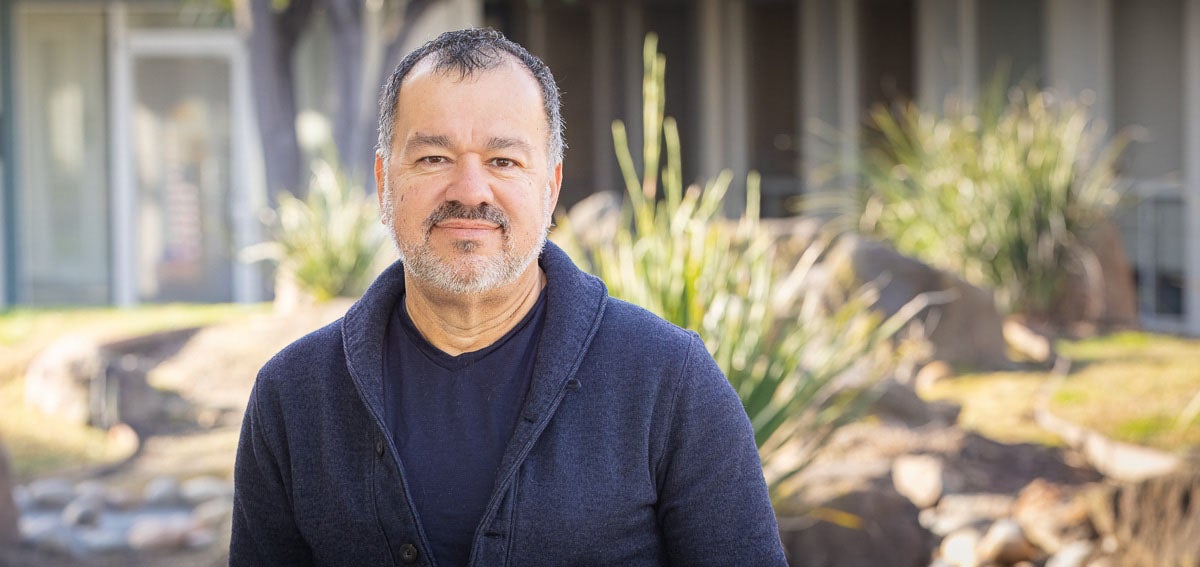|
Getting your Trinity Audio player ready…
|

In 2023, providers with Sonoma County Behavioral Health noticed a disturbing trend: Pre-licensed associate therapists were leaving their jobs due to a shortage of licensed clinical social workers (LCSWs) available to provide the supervision required for them to earn state licenses. Instead, the associates were being supervised by providers in other specialties — supervision that didn’t count toward licensure. This common issue across California has worsened the state’s chronic shortage of licensed therapists.
Therapists with Sonoma County heard about a partnership between other counties’ behavioral health plans and Motivo Health, an innovative start-up that provides virtual clinical supervision for therapists on a platform that complies with federal medical privacy rules. With the help of 12 remote supervisors from Motivo, Sonoma County not only began recruiting and retaining more pre-licensed clinicians, it increased the chance that they will stay with the county after earning licensure.
The partnership with Motivo has allowed the county to start hiring students still in graduate school who need supervised hours to fulfill graduation requirements. Plus, it is alleviating the workload previously placed on the county’s small supervisory team. “We only had three licensed clinical social workers working in the entire county, and they were getting burnt out, so having access to the remote supervision has been an amazing resource,” said Lisa Nosal, a licensed marriage and family therapist (LMFT) and training supervisor with the county.
Sonoma is among a growing number of California counties benefiting from a partnership between Motivo and the California Mental Health Services Authority (CalMHSA), which represents 58 county behavioral health plans. In the last two years, 10 counties have used 39 remote supervisors, enabling the delivery of 156,000 hours of services through supervised pre-licensed providers. Five more counties have signed up recently to participate, and Lucero Robles, senior director of quality at CalMHSA, hopes to see more pre-licensed providers take advantage of the access to remote supervisors.
Bolstering the Mental Health Workforce
Therapists-in-training are the future workforce for a state that is facing a severe shortage of mental health providers, yet most new graduates (57%) never achieve licensure, according to analysis of national data on master’s-level graduates in mental health counseling and social work.
“Too often, pre-licensed therapists are unable to find affordable, quality supervision that can count toward hours for licensure, forcing many to forgo getting licensed or to leave the field altogether,” said Carla Smith, LCSW, LMFT, chief clinical officer at Motivo.
The path to licensure isn’t easy. In California, therapists must complete 104 weeks of clinical supervision, with at least 52 weeks in individual or triadic sessions. Plus, pre-licensed providers frequently work in county behavioral health systems that serve high volumes of Medi-Cal patients with moderate to severe mental illnesses, such as schizophrenia, bipolar disorder, borderline personality disorder, or other conditions. Those under-resourced clinical settings often struggle to provide sufficient supervision, leaving new graduates to tackle the most challenging cases with minimal support, according to a new report from Motivo.
In Contra Costa County, Reynaldo Vargas, a therapist working toward licensure, was alarmed when he recently visited a client at her home in Oakley. He discovered she was catatonic, alone, and had not consumed food or fluids in two days. The woman, who has schizophrenia, was experiencing an adverse reaction to a new medication, and he drove her to the emergency room.
The incident confirmed for Vargas that the woman needed a higher level of care in an inpatient program, but he needed help broaching this topic with her. “Clients are often sensitive when they feel we are challenging their ability to adequately provide for themselves,” said Vargas, who is employed by Contra Costa Health as an associate marriage and family therapist.
Thanks to Jeanine Bourcier, LMFT, Vargas’ remote supervisor with Motivo, he was able to receive guidance on how to navigate a difficult case such as this. Bourcier, who practices in San Diego, encouraged him to present the inpatient program as an increase in support rather than a loss of independence. She coached him to remind the client of the emotions they both felt during the medical emergency. “I told the client I was terrified because she may not have survived if I had checked on her a day or two later,” said Vargas, 56, a former police officer pursuing a second career as a therapist. “Then [I said] we are working together to keep her safe.”
Reducing the Risk of Burnout
To reduce the risk of burnout and keep more therapists in the field, Motivo supervisors equip supervisees to navigate challenges specific to their county’s behavioral health system. “We can’t close our doors because we are legally required to provide this level of care as a benefit,” said Nosal. “Our providers are often dealing with crises because we have so many high-acuity patients.”
Bourcier, Vargas’ supervisor, has also supervised therapists who are distressed when clients experience a mental health crisis that does not qualify for psychiatric hospitalization or if they are discharged after a short stay. “Associates face an ethical dilemma because they feel like they are abandoning the patients when this happens,” Bourcier said. When providers experience guilt, shame, or anger because they can’t live up to their moral code when providing care, this creates what is known as moral injury, she said.
To help pre-licensed providers avoid moral injury, Bourcier teaches them about the limits of their scope of practice and treatment strategies they can use to best help patients. “Our job is not to make the symptoms go away but instead to help patients manage the distress caused by the symptoms,” she said.
She encourages therapists to practice empathetic listening by asking questions to better understand the client’s experience. If patients are hearing voices, for example, they learn to ask patients questions such as “How many voices are you hearing?” and “What are the voices saying?” She teaches them about the societal misconception that auditory hallucinations usually tell patients to do outrageous things — a phenomenon that is actually quite rare. “Most voices are self-deprecating or telling them bad things other people think about them,” Bourcier said.
She coaches supervisees to practice curious questioning to build trust with patients and help them understand that the voices are symptoms of mental illness. Pre-licensed therapists also learn how to teach clients distraction techniques to reduce distress caused by voices, such as listening to music, watching a movie, or talking to a friend.
Supervisees often ask her what to do when patients refuse to take their medication to treat mental health conditions. “By building rapport, over time, clients might listen to suggestions to take their medication,” she said. “If someone is dead set on avoiding medication, we have to respect their autonomy.”
Creating Time for Administrative Training
The benefits of a partnership with Motivo go beyond guiding more therapists through the licensure process. The Motivo approach has helped diversify the behavioral health supervisors in Sonoma County. Twenty-six percent of the supervisors in the start-up’s network are people of color and 20% are LGBTQ. When an associate asked to be matched with a supervisor from a similar racial and ethnic background, county therapist Nosal passed along the request to Motivo. “If there is a mismatch culturally, supervisees sometimes feel unnecessarily judged and inadequate for their beliefs,” said Nosal.
Access to Motivo’s clinical supervision is allowing county staff supervisors to dedicate more time to helping pre-licensed providers with the administrative aspects of their jobs, such as facilitating billing, fulfilling documentation protocols, implementing essential programs and services, and following state regulations for providing care, said Aimee Von Tungeln, LMFT, deputy director of behavioral health at the Siskiyou County Health & Human Services Agency. In the fall of 2024, a Motivo supervisor started coaching several pre-licensed providers in the county.
“We’ve gotten such positive feedback about the Motivo supervisor,” said Von Tungeln. “The clinical staff appreciate the valuable therapeutic tools she has shared to help them serve clients.” Von Tungeln was also impressed with the Motivo staff who helped the county set up the remote supervision. “Whenever we have questions, someone from Motivo responds right away,” she said.
Fulfilling Goals of Mental Health Workers
For Vargas, the high-quality supervision and positive experience of working with a team of providers is motivating him toward continuing in the county behavioral health system after he earns licensure. “I’ve always felt comfortable being a public employee working in big systems, and I want to work with populations that are the most underserved with high needs,” he said.
Vargas’ 11 months with Contra Costa Health has given him a glimpse of the difference he can make in the lives of people with serious mental health conditions. “I see clients who were isolated who start to leave their homes and get jobs,” Vargas said. “I enjoy seeing some of them stop using substances, successfully meet their court obligations, and start taking medications that can change their lives.”
Authors & Contributors

Heather Stringer
Freelance health and science journalist
Heather Stringer is a freelance health and science journalist based in San Jose. She studied civil engineering at Stanford University and started her journalism career at a daily newspaper in Fremont. Heather began covering health care as a staff writer and editor at a nursing magazine and launched her freelancing career in 2003. Her work has been published in Scientific American, Monitor on Psychology, Cure, Proto, and Nurse.com.




